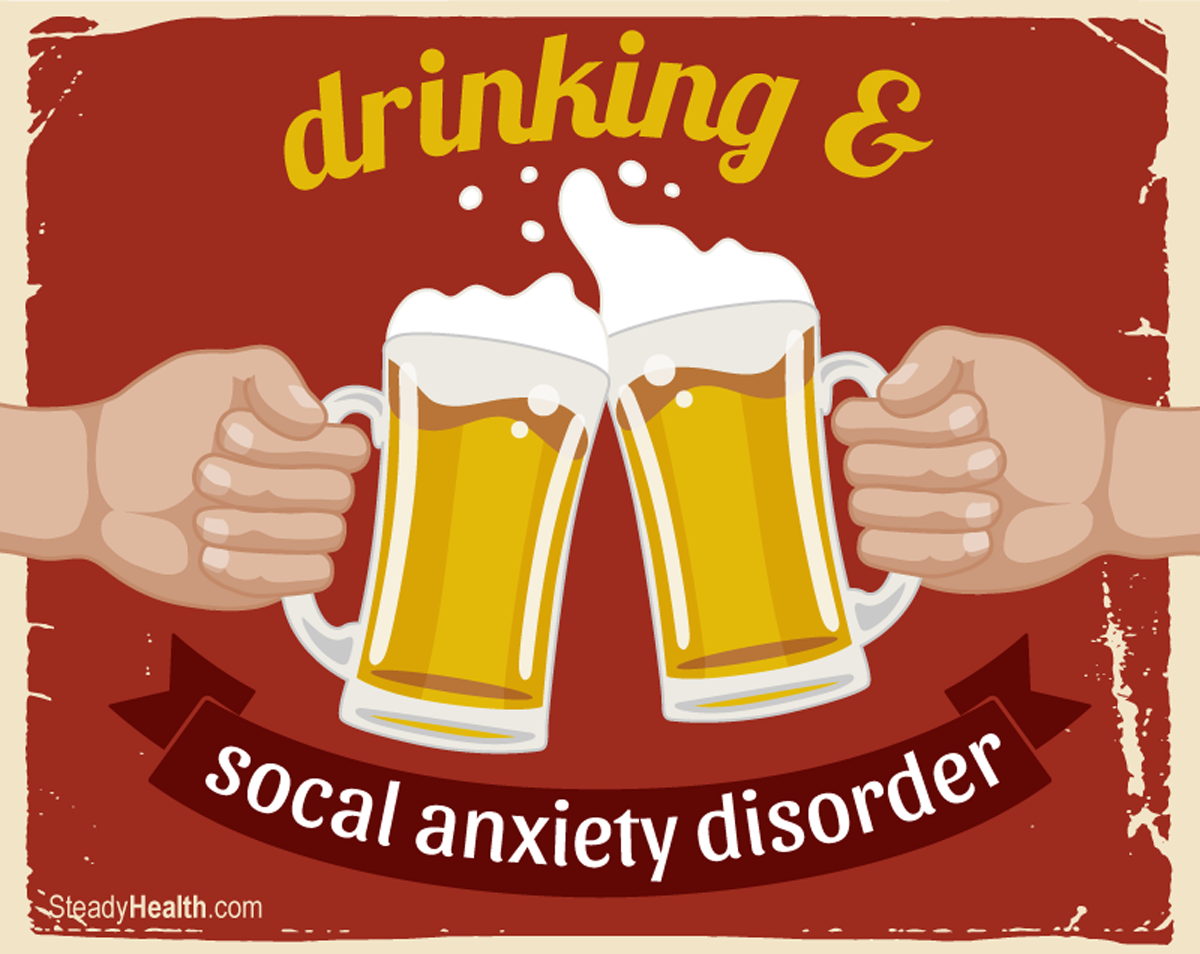Pouring a glass of wine to unwind in the evening after a stressful day's work is something many of us are familiar with, and you'll also have heard — and perhaps used — the phrase "I need a drink" when faced with a particularly trying social situation.
It is not strange that people who suffer from social anxiety disorder, an intense and persistent fear of certain social interactions, may think of alcohol as one of the most easily accessible relaxation techniques for anxiety, even when they know it's not also among the healthier coping mechanisms. Booze is, after all, both ubiquitous and socially acceptable.

Why Are People With Social Anxiety Disorder More Vulnerable To Alcoholism?
Social anxiety disorder is so frequently comorbid with alcohol abuse that a shocking 48 percent of people who have met the diagnostic criteria for social phobia at some point in their lives will also meet the diagnostic criteria for an alcohol abuse disorder during their lifetimes [1]. Indeed, research indicates that 23 to 39 percent of individuals in treatment for alcohol-related issues could be labeled with social phobia [2, 3].
Social anxiety disorder and marijuana addition are likewise linked, and interestingly enough, people with social phobia are at a particularly high risk of developing simultaneous cannabis and alcohol dependence. [3]
Though research in this area is limited, we do know that many people with social phobia go to great lengths to avoid the social interactions that make them anxious. One theory is that those social anxiety disorder patients who do manage to maintain a high level of social interactions are the most vulnerable to alcohol abuse. In other words, they use alcohol as a form of self medication that allows them to reduce their anxiety and engage in situations they would be unable to participate in if they were not consuming alcohol. [3, 4]
We further have to note that 80 percent of social anxiety disorder patients do not seek professional help for their anxiety [5]. In fact, large numbers of people with anxiety disorders indicate that they would actively prefer to manage their anxiety on their own, without medical help [6].
Does Alcohol Really Reduce Social Anxiety?
People have used alcohol to relax, relieve stress, and facilitate social interactions for centuries, and research confirms what many social drinkers already know — a few drinks can indeed lead to feeling calmer and less stressed in certain people [6].
One study showed, however, that people with social anxiety can become more anxious after drinking [7]. In a fascinating twist, another study demonstrated that drinking alcohol did allow social phobia sufferers to experience a reduction in their anxiety, allowing them to get through socially challenging events. The same was also true for those who were falsely told that their beverages contained alcohol. This demonstrates that people with social phobia indeed turn to alcohol to achieve self-medication, but also that drinking may have a placebo effect rather than triggering true physiological anxiety reduction. [8]
Alcohol: Not The Best Treatment For Social Anxiety
Even if you are a person with social anxiety disorder (formally diagnosed or otherwise) for whom alcohol truly seems to work as anxiety relief, you have to take the long-term adverse effects of alcohol abuse into account.
You now know that you are at a higher risk of developing alcohol dependence or other alcohol abuse disorders as a person suffering from social anxiety. While the obstacles that may stand in the way of you accessing less damaging treatments for your social phobia are clear and it is equally obvious why you may choose to manage your anxiety symptoms with alcohol, the only responsible suggestion anyone can make is that you seek medical attention. Cognitive behavioral therapy [10], pharmacological treatment with medicines such as SSRI antidepressants and benzodiazepines [11]. and science-backed relaxation techniques for anxiety are all, ultimately, better options for long-term anxiety relief than alcohol.
- Photo courtesy of SteadyHealth.com


Your thoughts on this